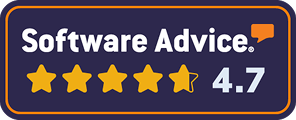Job interviews can be like roller coaster rides, full of exciting highs and nerve-wracking moments. Among the most challenging questions you'll face is about your salary expectations. This seemingly simple question requires strategic preparation and confident delivery.
This comprehensive guide will help you navigate crucial salary-related interview questions with confidence, ensuring you know your worth and can articulate it effectively to potential employers.
Related Articles:
- Explain the Career Gap in Your Resume
- Tell Me About a Time You Failed
- What Is Your Greatest Strength
- Why Should We Hire You
- Why Do You Want to Leave Your Current Job
- What Is Your Leadership Style
- How Did You Hear About This Position
- Tell Me About Yourself in a Job Interview
{{quick-link-3="/sandbox/home-v3"}}
Why Employers Ask About Salary Expectations
When a recruiter asks about salary, they have specific goals in mind:
- Budget alignment: They need to know if your expectations match what they can offer
- Value assessment: Your answer reveals how you value your skills and experience
- Negotiation insight: Your initial response sets the foundation for later compensation discussions
- Candidate screening: It helps determine if you've researched the position and industry standards
Understanding these motivations helps you prepare a response that addresses employers' concerns while protecting your interests.
Read more: Explore the top job platforms in the UAE for a successful career search!
How to Research Your Market Value {#research-market-value}
Before entering any salary discussion, thorough research is essential to determine your salary expectations:
- Industry salary surveys: Use platforms like Glassdoor, PayScale, and Salary.com to research average compensation
- Network intelligence: Connect with professionals in similar roles
- Location adjustments: Factor in cost-of-living differences for your specific location
- Company research: Investigate the specific employer's compensation reputation
- Education and experience: Assess how your qualifications compare to job requirements
This research enables you to confidently discuss what is expected salary for someone with your qualifications.
What Is Your Salary Expectation: Best Answers
1. The Range Approach
The perfect answer for expected salary questions often involves providing a well-researched range rather than a specific figure:
"Based on my research of similar positions and considering my experience with leading cross-functional teams, I'm looking for a salary in the range of $85,000-95,000. However, I'm also interested in the complete compensation package including benefits and growth opportunities."
2. The Deflection Approach
If you're asked early in the interview process:
"I'd like to learn more about the specific responsibilities and expectations for this role before discussing compensation. This would help me provide a more accurate salary expectation that aligns with the position's requirements. Could you share more about what the role entails?"
3. The Confidence Approach
When you have significant experience:
"With my track record of increasing departmental efficiency by 35% in my previous role and my specialized expertise in industry-specific software, I'm seeking compensation in the range of $110,000-120,000. I believe this reflects the value I'll bring to your organization while aligning with market rates for professionals with my qualifications."
How to Answer Desired Salary Questions
When asked "What is your desired salary?" or "How much salary do you expect?", consider these approaches:
1. The Research-Based Response
"I've researched the market rate for this position in our city, and considering my 7 years of experience and specialized certifications, my desired salary is between $75,000-85,000. That said, I'm also interested in learning about the complete benefits package and growth opportunities."
2. The Value-Focused Response
"My desired salary reflects the value I bring to the position. With my track record of increasing sales by 25% in my previous role and my expertise in emerging markets, I'm looking for compensation in the range of $90,000-100,000. However, I'm open to discussing how this aligns with your budgetary considerations."
Suggested: How to Ask for a Raise - A Complete Guide
3. For Entry-Level Positions
The best answer to desired salary questions for those with no experience:
"As someone starting my career in this field, I understand the importance of gaining valuable experience. Based on my research of entry-level positions in this industry, I'm expecting a salary in the range of $45,000-55,000. However, I'm also very interested in the professional development opportunities and mentorship programs your company offers."
Responding to Current Salary Questions
When asked "What is your current salary?" or "What is your base salary?", here's how to respond:
1. The Honest Approach
"My current base salary is $70,000, plus an annual performance bonus of approximately 10%. However, I've taken on significant additional responsibilities since my compensation was last adjusted, and I've enhanced my skills with advanced certifications. Based on current market rates, I'm seeking a position in the $80,000-90,000 range."
2. The Privacy Approach (Where Legal)
"I'd prefer to focus on the value I can bring to this position rather than my current compensation, which was determined in a different context. Based on my research of similar roles in this market, I'm seeking a salary in the range of $75,000-85,000. Is this aligned with your budget for this position?"
3. The Redirection Approach
"My current compensation package includes several components beyond base salary, including performance bonuses and benefits. I'd be happy to discuss these details further along in the process. For now, could you share the range you've budgeted for this position so I can determine if we're aligned?"
Negotiating Salary Offers
How to Respond to a Salary Offer
When you receive an offer, you can respond with:
"Thank you for the offer of $80,000. I'm excited about the opportunity to join your team. Based on my research and the value I'll bring given my experience with similar projects, I was hoping for something closer to $88,000. Is there flexibility in the budget to reach that number?"
How to Counter Offer Salary
When making a counter offer:
- Express enthusiasm for the position
- Highlight specific skills and experiences that justify higher compensation
- Propose a specific counter figure based on research
- Consider the total package, not just base salary
- Remain professional and collaborative
Sample counter offer language:
"I appreciate the offer of $75,000 and am excited about the possibility of joining your team. Given my specialized experience in AI implementation that has directly resulted in 20% cost savings for previous employers, would you consider $82,000? This would align more closely with market rates for professionals with my qualifications."
Suggested: Mastering the Art of Salary Negotiation: A Guide for Emirati Professionals
Sample Answers for Experienced Professionals
1. For a Lateral Move
"In my current role as a project manager with 7 years of experience, I'm earning $85,000 annually. For this position, which involves greater team leadership and budget management responsibilities, I'm looking for a range between $90,000-100,000, which aligns with industry standards for senior project managers. However, I'm also interested in the comprehensive benefits package and growth trajectory."
2. For a Significant Career Advancement
"Having led successful digital transformation initiatives that increased revenue by 45% at my current company, I've researched senior digital strategy roles. For this director-level position, I would expect compensation in the $120,000-135,000 range. That said, I'm particularly drawn to your company's innovation culture and international growth opportunities, which are important factors in my decision-making process."
Sample Answers for Fresh Graduates
1. Salary Expectation Sample Answer for No Experience
"As a recent graduate with a degree in computer science and two relevant internships, I've researched entry-level developer salaries in the market. Based on current rates and my specialized skills in React and Node.js, I would expect a salary in the range of $55,000-65,000. However, I'm particularly interested in opportunities for mentorship and professional growth, which are equally important factors in my decision."
Suggested: FREE Resume Templates For Each Job Title
2. How to Negotiate Salary as a Fresher
"Thank you for the offer of $50,000. While I understand that I'm at the beginning of my career, my academic achievements and internship experiences have prepared me to contribute immediately to your team. Based on my research of similar positions, would you consider $55,000? I'm also very interested in understanding the performance review timeline and criteria for advancement within the company."
Conclusion:
Mastering salary-related questions requires preparation, research, and confidence. By understanding your market value and communicating it effectively, you position yourself as a knowledgeable professional who values their skills appropriately.
Remember that compensation negotiations are a two-way conversation. The goal isn't just maximizing your immediate earnings, but finding a mutually beneficial arrangement that reflects your worth while aligning with the employer's capabilities.
When confirming salary expectations in final discussions, be clear and specific about what you've agreed to, including base salary, benefits, bonuses, and review timelines. Get the final agreement in writing to ensure all parties have the same understanding.
Suggested: Interview Questions Template For Each Job Title













